Understand the risks of hypertension, why it's often called "The Silent Killer", and how to manage it with expert insights from a Tigard, Oregon physician.
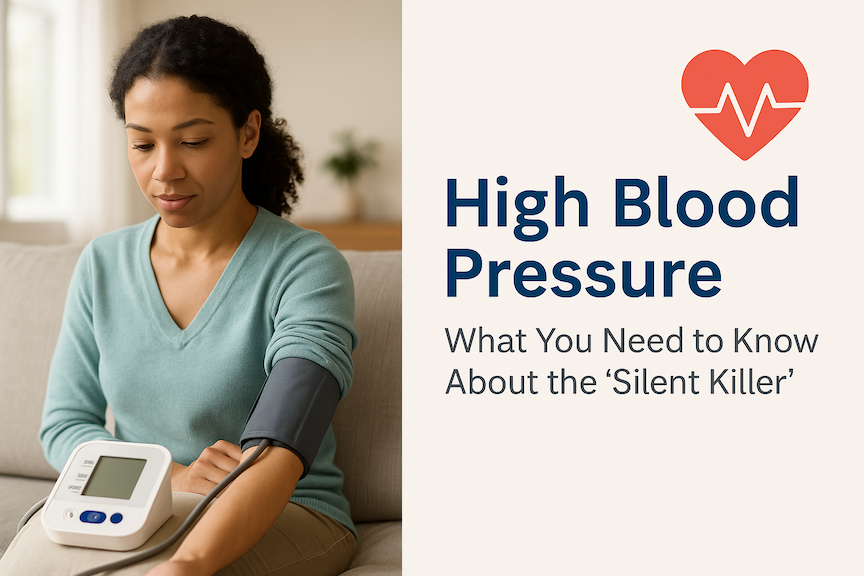
If you’ve ever been told your blood pressure is “a little high,” don’t ignore it.
High blood pressure—also known as hypertension—is one of the most common and dangerous health conditions worldwide. It often shows no symptoms until serious damage has already happened.
In this guide, you’ll learn:
What high blood pressure is
Why it’s called the "silent killer"
How it affects your body
What you can do to lower it naturally
-
When it’s time to see your doctor
What Is High Blood Pressure?
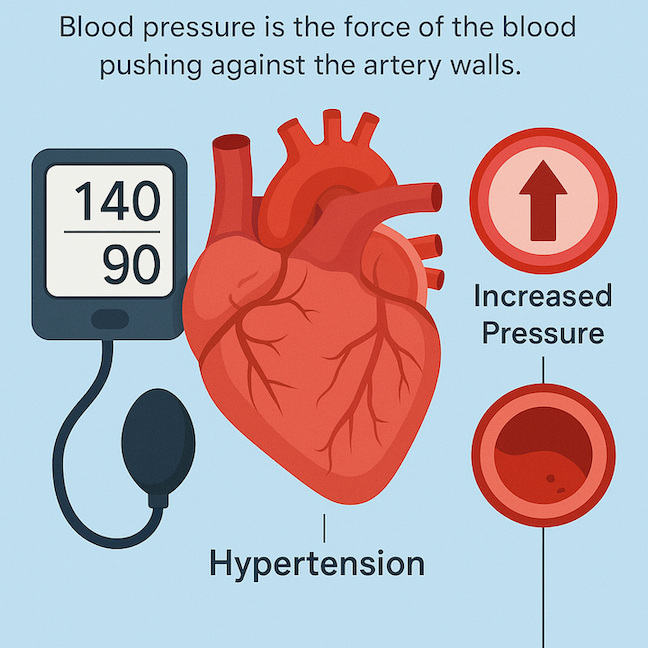
Blood pressure is the force your blood exerts on your artery walls as your heart pumps.
High blood pressure occurs when this force stays too high over time. That constant pressure can damage your blood vessels and make your heart work harder than it should.
Doctors define high blood pressure as:
130/80 mmHg or higher (based on guidelines from the American Heart Association)
Why It’s Called the “Silent Killer”
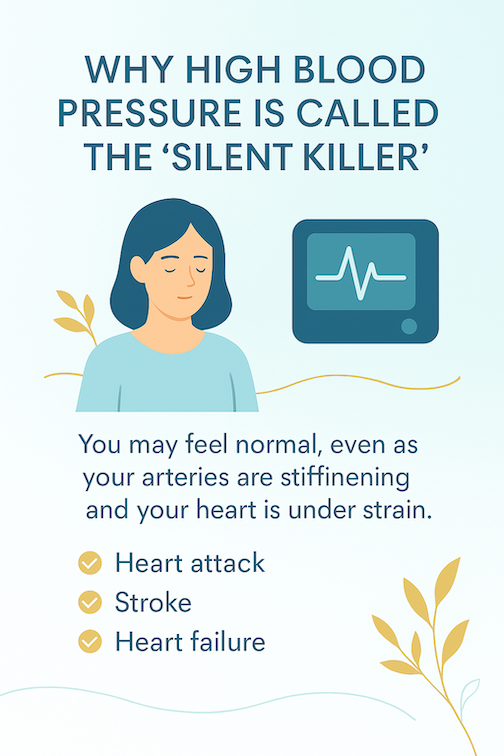
High blood pressure usually causes
no symptoms.
Many people feel completely fine—even while their heart and blood vessels are being harmed.
If left untreated, hypertension can quietly lead to:
Heart attack
Stroke
Kidney disease
Vision loss
Sexual dysfunction
“Nearly half of all adults with high blood pressure
don’t know they have it.” – CDC
How Blood Pressure Is Measured
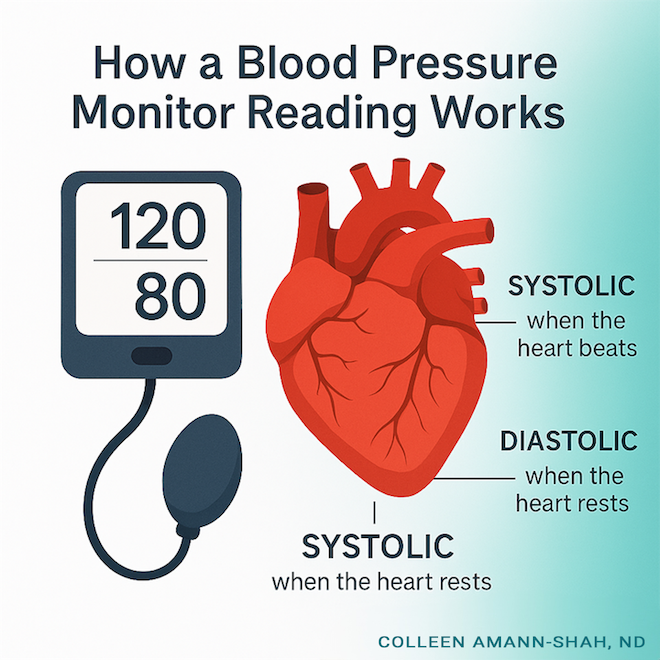
Your blood pressure is measured using a cuff (usually on your upper arm). The result shows two numbers:
Systolic (top number): pressure when your heart beats
Diastolic (bottom number): pressure when your heart rests
If your reading is 180/120 or higher, it’s a medical emergency.
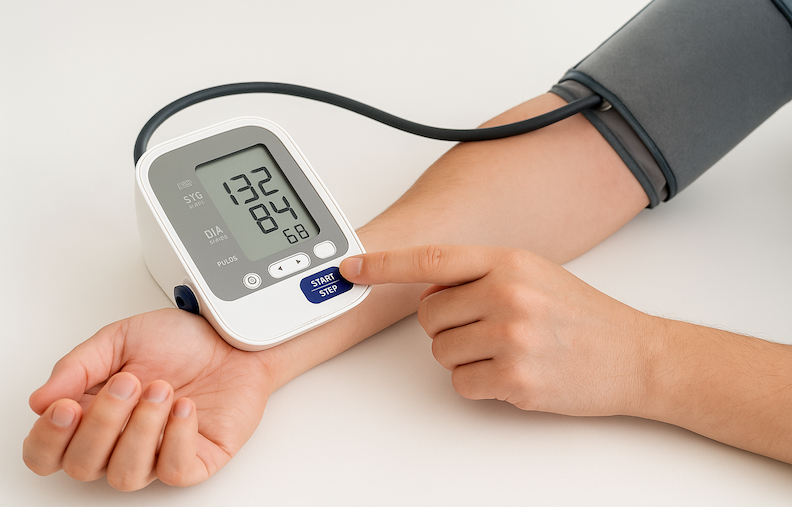
Who Is at Risk for High Blood Pressure?
Some risk factors are beyond your control. Others you can change.
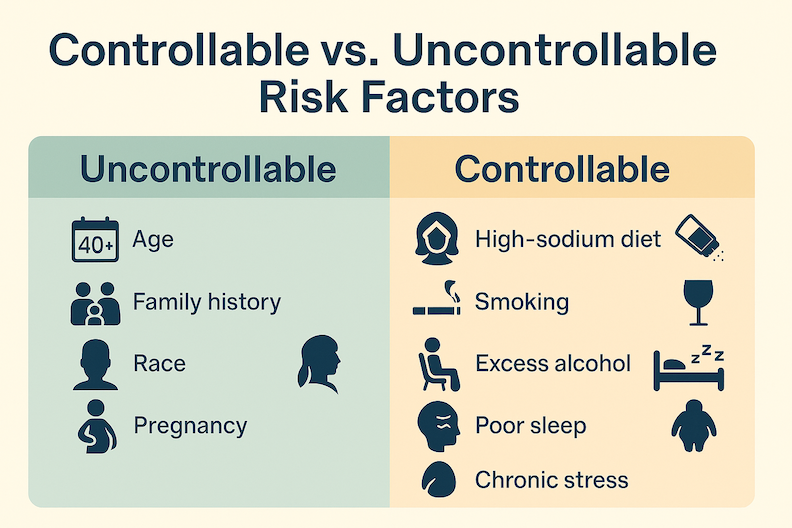
Risk factors you can’t control:
Age (especially over 40)
Family history of hypertension
Race (Black adults are at higher risk)
Pregnancy
(especially with
pre-eclampsia)
Lifestyle factors you can improve:
High-sodium diet
Smoking
Excess alcohol
Sedentary habits
Poor sleep
Chronic stress
Obesity
Common Symptoms of High Blood Pressure
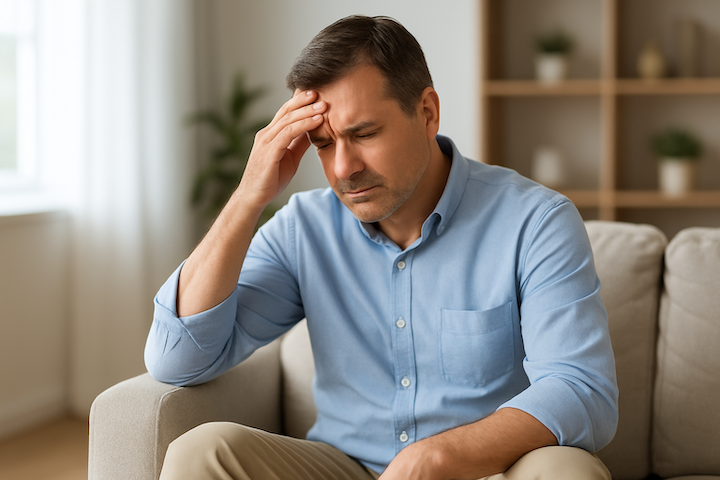
Most people with high blood pressure don’t feel
any different. But in some cases,
symptoms may include:
Headaches
Dizziness
Shortness of breath
Nosebleeds
Chest pain
Blurred vision
⚠️ If you’re experiencing chest pain or trouble breathing, call 911.
How Is High Blood Pressure Diagnosed?
A single high reading doesn’t mean you have hypertension. Your doctor may use:
• Office blood pressure checks – readings over multiple visits
• Home blood pressure monitor – to track changes over time
• 24-hour wearable monitor (ABPM) – for a full-day snapshot
How High Blood Pressure Affects Your Body
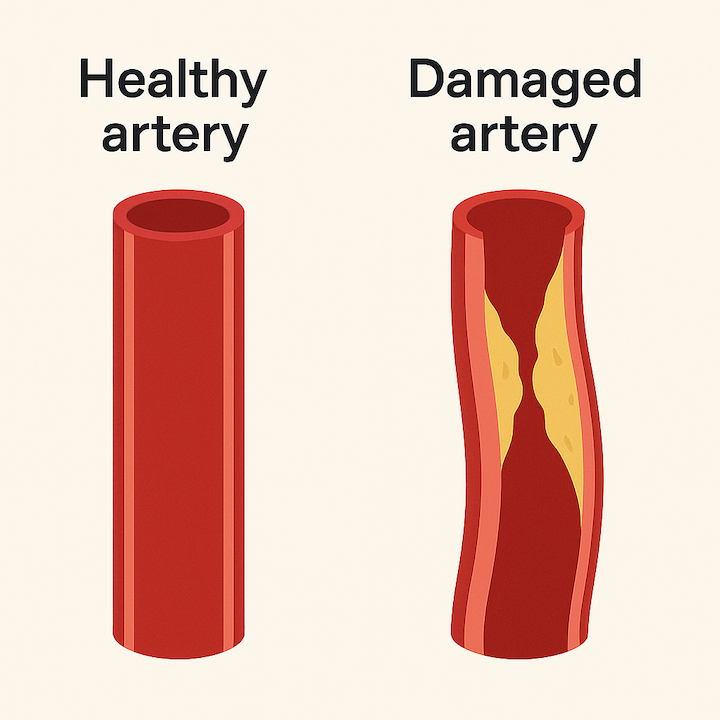
If left unmanaged, hypertension can silently harm your:
Heart – May cause heart failure or valve disease
Brain – Increases risk of stroke and memory loss
Kidneys – May lead to kidney failure
Eyes – Can damage the retina and cause vision loss
Sexual health – May reduce libido or contribute to erectile dysfunction
Natural Ways to Lower Your Blood Pressure
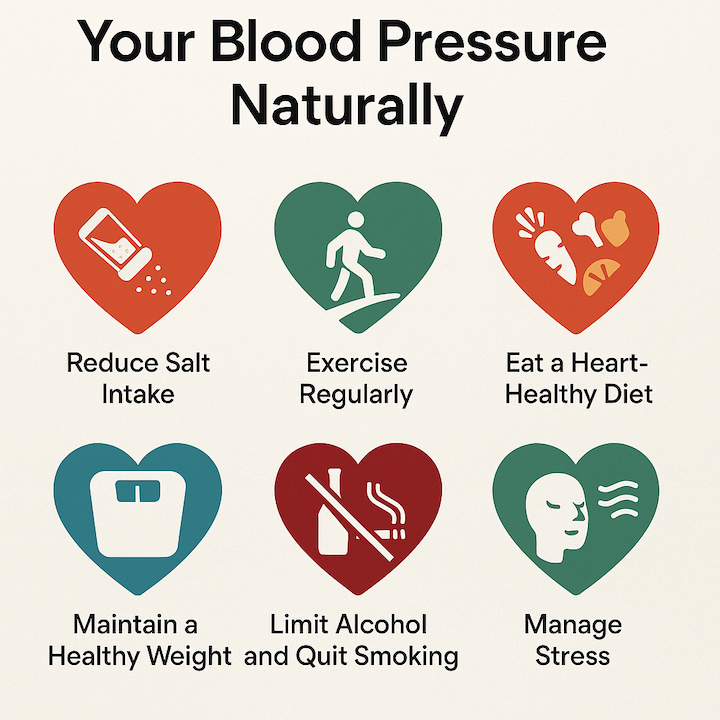
Many people can reduce their blood pressure naturally—without medication. Here’s how:
1. Limit Salt Intake
Aim for less than 1,500 mg per day. Avoid processed foods.
2. Exercise Regularly
Try walking, biking, swimming—at least 150 minutes per week.
3. Follow the DASH Diet
Fruits, veggies, lean proteins, low-fat dairy, and whole grains.
4. Lose Weight (If Needed)
Even a 5–10% weight loss can make a difference.
5. Quit Smoking and Limit Alcohol
Both raise blood pressure and heart risk.
6. Manage Stress
Try mindfulness, counseling, or journaling.
When Medication Is Needed
If lifestyle changes aren’t enough, medication may be necessary. Your doctor might prescribe:
Thiazide diuretics – Reduce excess fluid
ACE inhibitors or ARBs – Relax blood vessels
Calcium channel blockers – Keep vessels from tightening
Beta-blockers – Lower heart rate and strain
You might need more than one. Always talk to your provider before changing or stopping any medication.
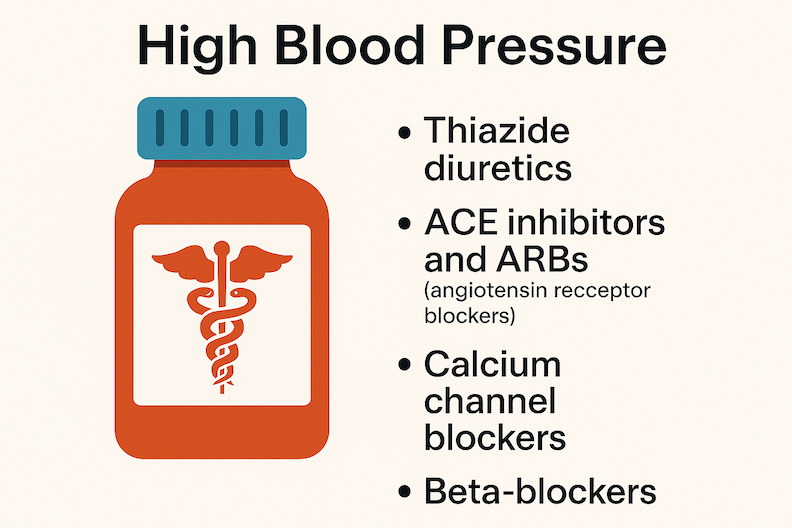
When to See Your Doctor
You should start regular blood pressure checks at age 18.
Book an appointment if:
Your readings are consistently 130/80 or higher
You have symptoms like headaches or dizziness
You want help building a prevention or treatment plan
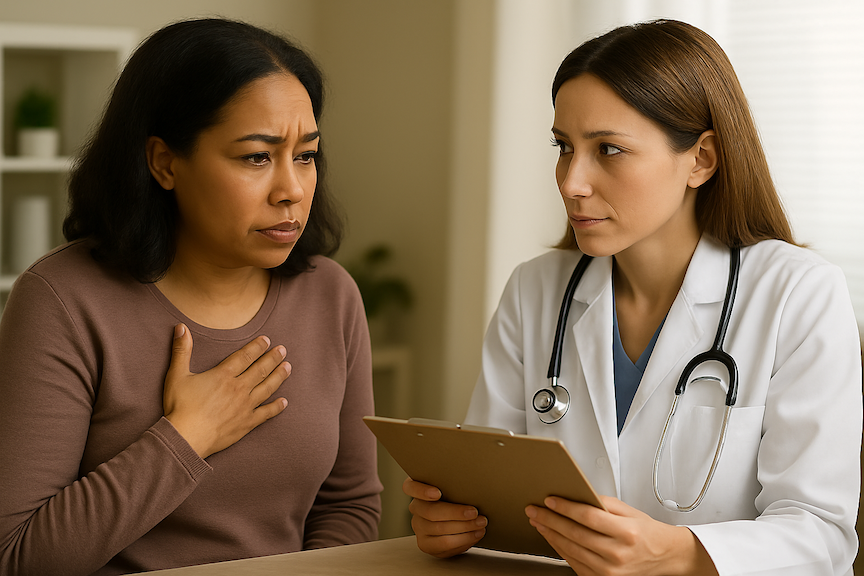
Meet Dr. Colleen Amann-Shah
Dr. Colleen offers integrative, evidence-based primary care in Tigard, Oregon. She works with you to understand the root causes of your condition and create a personalized care plan.
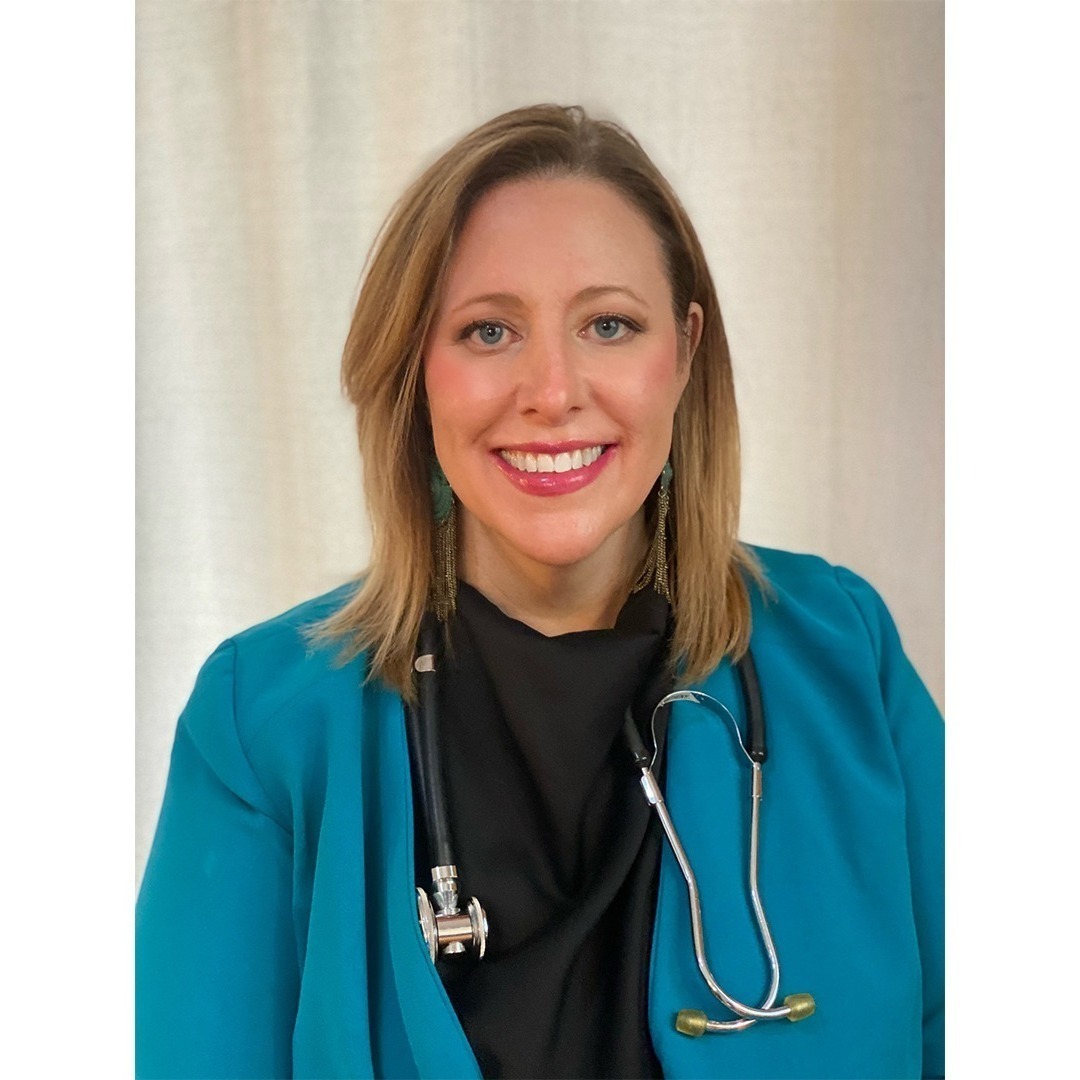
“Many patients don’t realize how manageable high blood pressure can be—especially with the right support.”
– Dr. Colleen Amann-Shah
Colleen Amann-Shah, ND
Integrative Primary Care | Tigard, Oregon
Serving the greater Portland Metro area.
Schedule Your New Patient Visit
Helpful Tools for Patients Dealing With High Blood Pressure
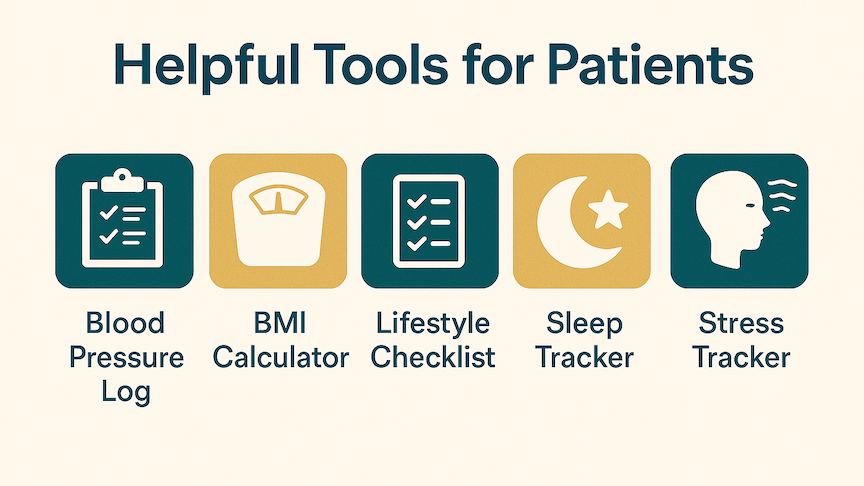
Use these tools to track and improve your numbers:
Home blood pressure monitor
Printable blood pressure log
BMI calculator
Healthy lifestyle checklist
Sleep and stress tracker
Final Thoughts: You Can Take Control

High blood pressure doesn’t have to define your future. With early action, healthy habits, and personalized care, you can protect your heart, brain, and overall well-being.
Don’t wait for symptoms.
Know your numbers.
Make a plan.
YOUR LONG-TERM HEALTH IS WORTH IT!
Dr. Colleen Amann-Shah, Naturopathic Physician
Integrative Primary Care
Serving Tigard, Oregon and
the Greater Portland Metro Area
For more info, visit:
DrColleenAmannShah.com
Book an Appointment with Dr. Colleen
 Add Row
Add Row  Add
Add 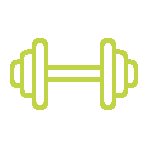

Write A Comment